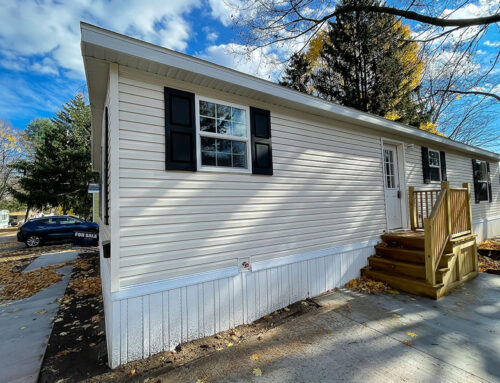Chris called me up the other day to ask about buying investment property from a house auction in PA. He’d gotten into a debate with a fellow new investor living in Pittsburgh on one of his social media accounts and, especially since the exchange was happening publicly, wanted me to chime in and prove he was right. His position—that “buying a foreclosure auction home—made for a good deal more often than not” seemed to me to be tenuous, though. He’d only attended a seminar on the subject in downtown Philly and not an actual auction. And, he admitted as much.
So, he was hoping that because I am always busy buying, renovating, and reselling properties that at least some of my deals came from an auction. Unfortunately for Chris, I don’t buy auction houses these days. But, I do have past experience and so agreed to give him my take on the subject. We’d have to do it offline, of course. I’m a little too old, and way too busy, to mess with social media.
Buying Investment Property from a House Auction in PA
There are potential benefits to buying homes from auctions, which is why a lot of Keystone State investors do it—or, at least, try to. The houses that are sold are usually being foreclosed on because the homeowner fell behind on their mortgage obligations or couldn’t pay their property taxes. And, since Pennsylvania is a judicial foreclosure state, the court almost always orders that lender-foreclosed properties be sold to the highest bidder before the bank or credit union can absorb it back into their inventory. Tax foreclosure homes automatically go to auction, too. That means you not only have the chance to buy a house at well below the current market value but, if you can also keep your rehab costs low, you could turn around and sell your investment property for a good ROI.
Since foreclosure homes in Pennsylvania are sold at local Sheriff’s Sales, that’s where you’ll want to look for these opportunities. Three of the largest in the state take place in PA’s three biggest cities: Philadelphia, Pittsburgh, and Allentown. So, let’s take a closer look at the process of buying from those particular auctions.
Philadelphia Sheriff’s Sale
Bank foreclosure auctions happen here once a month, whereas tax foreclosure auctions happen up to four times each month and once a quarter at Philadelphia’s Sheriff Sale. Properties up for sale are listed on the Office of the Sheriff’s website, along with opening bid amounts and the home’s current assessed value. You can also find listings rotated through various local papers. Bidding can occur in $100 increments and, if you win, only a 10% deposit in the form of a certified check or money order is required to put down. You also get 30 days to close on the property—something you don’t see very often with auctions. So, not only are there multiple opportunities to buy homes from this sale, you get a longer timeline to do so.
Unfortunately, there are also multiple opportunities to lose big on homes bought from this auction. First, the former owner of the home—if still occupying the property—gets a lengthy Right of Redemption period on tax sales. So, if they can come up with a way to resolve the original debt and pay you back your purchase price within six months, they can get their house back. You won’t, however, be reimbursed for any of the renovation or holding costs you may have already paid. So, you could easily find yourself out of a deal and into some debt. And, though the Sheriff encourages all potential buyers to visit the properties for sale, you won’t be guaranteed entry to perform a home inspection. That makes it tough to know just how much repair work will need to be done, and at what price, assuming you get to keep the house at all.
Allegheny County Sheriff’s Sale
The Allegheny County Sheriff’s Sale holds monthly auctions on any real estate property with a judgment against it. The sales are advertised in the Post Gazette and the Pittsburgh Legal Journal. But, if you need more information about a property or the terms of its sale, you can call the Sheriff’s office directly. Deposits are 10% and must be paid with cash, a cashier’s check, money order, or your attorney’s check. If you win, the balance also has to be paid by Friday morning of the same week. So, unfortunately, you don’t get a lot of time to close. But, if you can get a hard money loan or find another source for funding fast, bidding—and buying—from this auction could be worth it.
Except that if you don’t find a way to close on the house within days—or decide not to because of the shape it’s in—you forfeit the property and your deposit. But, as is the case with most Sheriff Sales, you’re probably going to have to close on it blindly anyway. Allegheny County does not provide access to the homes sold at the Sheriff’s Sale and, unlike Philadelphia, doesn’t encourage you to just drop by either. So, you’re going to have to bid with a lot of cash in hand and hope that you haven’t bought a money pit. But, since the sale can be postponed at any time and for any reason without an order from the court, you may not have to ever worry about closing. Instead, you should just worry about where to get another deal.
Lehigh County Sheriff’s Sale
The Lehigh County Sheriff’s Office auctions homes with mortgage, tax, and other judgments levied against them every month in Allentown. Houses scheduled for sale can be found online, advertised in the Morning Call and Lehigh Law Journal, and posted outside the subject properties themselves. Upon winning, you will immediately have to pay a 10% deposit plus the sheriff’s poundage—or total cost to bring the house to sale—and all transfer taxes by certified or cashier’s check. Luckily, the Sheriff’s cost sheet is made available on their website. So, you should know in advance how much you could owe before you start bidding. And, just like in Philadelphia, you have 30 days to come up with the rest.
But, anyone who may object to the sale also gets 30 days to file with the Sheriff—after you’ve closed—and that’s not the only snag you could run into with this auction. Though the judicial sales on these mortgage foreclosures may come with free and clear titles, the homes sold to recover back taxes definitely do not. Either way, all properties are sold strictly as-is with no guarantees. So, it’s possible to buy a house that has a mortgage or other liens attached to it that you, then, become responsible for. Taking on more financial responsibility, particularly a defaulted loan, for a distressed property that’s likely in need of serious work is not a great way to guarantee good returns. In fact, the only thing you’re guaranteed is a high degree of financial risk.
A lot of the rules and general sales terms for many of Pennsylvania’s house auctions overlap, but they can also diverge considerably. So, whether you still intend to attend one or several, never assume that one size fits all. Research each auction carefully and perform your due diligence on the properties they put up for sale—where you can, that is. You don’t want to get stuck bidding at an auction whose process you don’t fully understand. That’s a surefire way to get stuck with a property you hadn’t planned to buy.
Of course, you should reconsider whether you ought to attempt buying investment property from an auction at all. Even if you think you can reasonably abide by the terms of sale, you might find it hard to live with the home you end up with. The houses sent to auction are frequently in very rough shape, making their repair tough to take on—and pay for. And, sometimes, homeowners are still there so you buy into another layer of expense and complexity. It’ll be up to you to get them out—and, somehow, still find a way to make a good return.
To avoid any of the potential pitfalls that come with buying a property from one of Pennsylvania’s real estate auctions, you’re better off not messing with them at all. Your best bet for finding deals you can count on, in fact, is to buy property directly from homeowners before they go to auction. But, for that, you’ll need a source for finding reliable distressed homeowner leads.
Buy Directly from Homeowners to Better Benefit Your Bottom Line
After hearing my speech about how house auctions work in PA, I had Chris convinced that he was on the losing side of his online debate. But, when I also told him how I find qualified leads on distressed homeowners, I also had him convinced to join HomeVestors®. HomeVestors® independently owned and operated franchisees, like me, have access to some of the best marketing tools and resources, like the widely-trusted “We Buy Ugly Houses®” national ad campaign. With this marketing behind me, I never have to mess with auctions and the risks they entail like I did when I was a younger investor. Instead, I can focus on building my professional real estate investing business by doing what I do best: helping homeowners get out of an “ugly” situation before it gets worse—and their house goes to auction.
Benefit your business with a better source of qualified leads. Call HomeVestors® today for more information about becoming a Pennsylvania franchisee!
Each franchise office is independently owned and operated.
Contact
"*" indicates required fields





